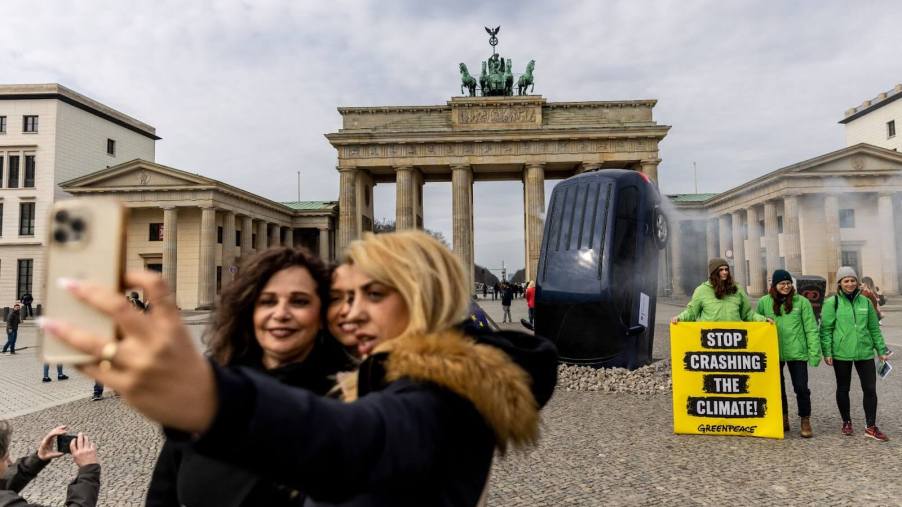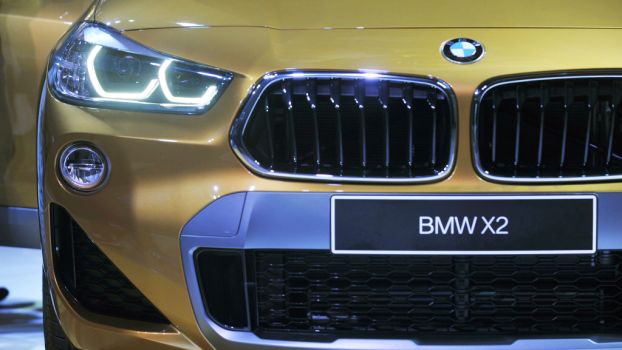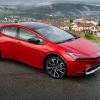
Electric Vehicles Aren’t the Climate Change Solution we Were Promised
As we push toward an electrified automotive future, the overarching message is one of sustainability and environmental responsibility. Unfortunately, though, a new study claims that private electric vehicles aren’t the single solution to climate change they were once thought to be. The question then becomes – how can we change course?

Are electric cars better for the environment?
The reason for the emphasis on electric vehicles has everything to do with pollution from tailpipe emissions. While that is certainly an admirable goal, it ignores the fact that private vehicular travel is about much more than what comes out the back of your car.
By switching to EVs, tailpipe emissions drop in urban areas, but that doesn’t mean they are carbon-neutral. According to a study published in Science Direct, the pollution simply shifts to rural areas. That means while electric cars are better for the environment in one area, they harm it in another.
In some cases, EVs place a higher demand on the power grid, which often burns coal or natural gas. In all cases, the Lithium mining required to produce EV batteries pollutes both soil and groundwater in the surrounding area. By making a mass switch to EVs, pollution isn’t solved – it’s simply outsourced to places we don’t see.
Focusing on EVs reduces the emphasis on equitable solutions

There are other downsides to the EV revolution that go beyond pollution. Private electric vehicles are expensive to buy at a time when more Americans are below the poverty line than ever. Worse yet, government spending on EV infrastructure has diminished the focus on more wide-reaching mobility solutions.
Even the most sustainably-sourced EV takes up more physical space and resources than robust public transportation infrastructure. The problem with this lies in its inefficiency. Forcing buyers to choose between overpriced electric vehicles and underfunded public transportation isn’t just environmentally short-sighted, it further divides the haves from the have-nots.
Dependence on private vehicles is a detriment to our people, economy, and environment, whether those vehicles use gasoline or electricity. The solution to this problem isn’t a simple one – but it doesn’t have to be.
In a country where individuals have enough capital to privately fund space flight, there should be no issue with investing in active and public transportation infrastructure. Diversifying how we travel will go much further than focusing on electric cars because they are marginally better for the environment.
Why would a car enthusiast want more public transportation?
As car people, this entire argument may seem a bit contradictory. We love our Dodge Challengers, BMW M3s, Mustang Cobras and, yes, Lucid Airs. But we also want those things to exist in perpetuity on some level or another.
The risk we run by remaining solely focused on private vehicle ownership has nothing to do with EVs or pollution. It has everything to do with the sustainability of all the things we love. Cars, trees, and everything in between.
Why aren’t electric vehicles working to solve climate change?
A diversified focus on electrifying fleet vehicles, robust public transportation options, and actively walkable and bikeable cities will create an opening for the cars we love to remain for generations.
We can reduce tailpipe emissions while giving everyone improved access to mobility and keep our fuel-burning sports cars around for years to come. But if we singularly focus on EVs as a solution to pollution, we risk creating a system so imbalanced that change will no longer be optional.
Are electric vehicles actually better for the environment? Yes. But producing them also presents challenges that threaten our planet in other ways. Only by opening more avenues of efficient mass transit along with walkable and bikeable cities can we truly begin to put a dent on our climate woes.




